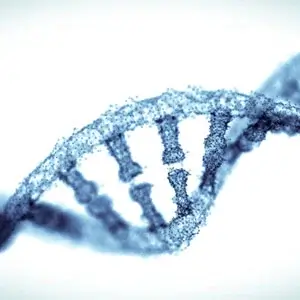

A Guide to Pharmacogenomics Testing
Comprehensive Diagnostic Evaluations at J. Flowers Health Institute
The information presented on this page is an overview of the average evaluation of this nature and is offered here as a resource. At J. Flowers Health Institute, our evaluations are customized and tailored to the individual’s needs. We specialize in providing truly comprehensive health and wellness evaluations and a workable plan for future health to those who want to improve their quality of life.
If you would like to learn more about J. Flowers Health Institute, please do not hesitate to reach out.
Adverse Drug Reactions
Table of Contents
Share This Article
Categories
Top Blogs
Recent Post
What is Pharmacogenomics?
Pharmacogenomics (PGx) is a science that attempts to take the guesswork out of how drugs will affect a person. It is research that is done via genetic testing to gauge how a person will respond to medications. The word pharmacogenomics comes from a combination of the words pharmacology (the science of drugs) with the word genomics (the study of genes and gene functions).
How Does Pharmacogenomics Work?
What is DNA?
DNA (deoxyribonucleic acid) is the hereditary material found in humans. Just about all the cells in the body have the same DNA. The information in DNA is stored as code using different combinations of 4 bases (A, T, C, and G). Human DNA consists of about 3 billion bases. Approximately 99% of those bases are the same for everyone. The sequence of these bases determines the information available for building and maintaining a person.
DNA (deoxyribonucleic acid) is the hereditary material found in humans. Just about all the cells in the body have the same DNA. The information in DNA is stored as code using different combinations of 4 bases (A, T, C, and G). Human DNA consists of about 3 billion bases. Approximately 99% of those bases are the same for everyone. The sequence of these bases determines the information available for building and maintaining a person.
Nucleotides that are organized into two strands forming a spiral shape are called a double helix. The double helix looks similar to a ladder. Forming the ladder’s rungs are the base pairs. The vertical sides of the ladder are constructed from the sugar and phosphate molecules.

What is a Gene?
The Right Medication Through Pharmacogenomics
- Drug receptors
- Drug uptake
- Drug breakdown
- Whether a certain medicine will be effective
- The best dosage for a person
- Whether a drug will cause a serious side effect
Drug Receptors
Drug Uptake
Drug Breakdown
Who Performs Pharmacogenomics Testing?
A healthcare practitioner can order for PGx testing to be performed. The two most common ways the test can be performed are by using blood or saliva. Once a sample is taken, it is sent off to a genetic testing lab.
For a Blood Test
For a Saliva Test
What Does Pharmacogenomics Testing Tell a Healthcare Professional?
- If the body will react negatively to certain medications
- What medications will help achieve better outcomes
- What dosages of medications are the most beneficial
- How medications may interact with each other, both positively and negatively
Why is Precision, Personalized Medicine Important?
According to the Food and Drug Administration (FDA), costs associated with adverse drug reactions total $136 billion annually.4 Also, these adverse drug reactions cause 20% of the injuries or deaths annually to hospitalized patients. Precision medicine is important to avoid the risks that taking inappropriate drugs can cause.
- More than two-thirds of people get a prescription as a result of a healthcare visit.4
- About 2.8 billion prescriptions were filled in the year 2000 alone. That works out to 10 prescriptions per American.4
- When someone is taking 4 or more drugs, the risk for adverse drug reactions increases exponentially.4
While healthcare professionals need to reduce the number of medications a person is taking when appropriate, in many cases doing so would cause a person harm. For this reason, it is vital to understand how medications interact with a person, and PGx testing can help in this area. PGx testing allows a doctor to make the most informed decision when prescribing drugs and avoiding preventable adverse drug reactions.
Precision Medicine and Mental Health Disorders
How Does DNA Testing Help a Medical Team?
- DNA testing has potential benefits in determining if a person has gene mutations.
- DNA test results can help give a person peace of mind when they are uncertain about how to proceed in healthcare decisions. With DNA test results, it's possible to make informed decisions about managing healthcare.
- In some cases, DNA test results can eliminate the need for unnecessary checkups and other screening tests.
- Results from a DNA test can inform a person on how to prevent and monitor certain conditions. It can also help inform treatment options.
- People thinking about having children can be helped by DNA test results.
- DNA testing on newborns can help with the early identification of genetic disorders, so treatment can begin as soon as possible.
Drug Interactions
- Drugs can bind to each other in the gastrointestinal tract, which can prevent absorption and availability.
- Interactions that happen in the liver and gastrointestinal tract can change the rates that the body metabolizes the drugs. It can either speed it up or inhibit the metabolism process.
- If several drugs compete at the site of drug transportation, interactions can develop.
Interactions can also happen at the level of drug action. For example, there are FDA warnings for taking any beta-blocker along with any calcium channel blocker because this can slow the heart rate and cause a heart block. In practice, most healthcare providers know that these two classes of drugs are often used successfully and safely in people with hypertension. This conflict between drug interaction warnings and actual use can cause distrust in warnings.
PGx Testing Examples
-
Warfarin: Before PGx testing, many people taking Warfarin to prevent blood clots, which is prescribed 21 million times annually, were at risk.6 If they were to take too little of the drug, it could cause more blood clots. If they were to take too much of the drug, it could cause excessive bleeding.
In 2007, the FDA recommended PGx testing for people where Warfarin was being considered to help their conditions.7 Pharmacogenomics testing helps healthcare professionals determine which people are expected to benefit from taking Warfarin and at what dosage.
-
Opioids for Pain Management: Another example of PGx testing helping people is in determining the levels of opioids needed for effective pain relief.8 Different people metabolize pain medications at different rates. People with a slower metabolisms may build up dangerously high levels of opioids in the body, causing adverse events such as addiction. Knowing a person's metabolism patterns through PGx tests helps determine optimal dosing that controls pain but also radically reduces the risk of addiction.
PGx tests also aid healthcare professionals in recognizing that some people may need a higher dose of painkillers to experience pain relief. For example, people who rapidly metabolize opioids may not experience pain relief, but if they ask for higher doses, it may be assumed that they are abusing the drug.
- If several drugs compete at the site of drug transportation, interactions can develop.
DNA Testing and Informed Consent
- The testing procedure
- The benefits of DNA testing
- The limitations of the DNA test
- The possible consequences of the results
Informed Consent Form
- A general description of the test
- The purpose of the test
- The condition for which the test is being performed
- How the test will be performed (i.e. blood or saliva sample)
- What test results mean, either positive or negative results
- The possibilities of results that lack useful information
- The potential for incorrect results (i.e. false positives or false negatives)
- Any physical or emotional risks associated with DNA testing
- If the results may be used for research purposes
- What happens to the test specimen once testing is over
The different aspects of informed consent may vary by state because some states have specific laws on what must be included.
Paying for DNA Testing
Resources
- https://www.merckmanuals.com/professional/clinical-pharmacology/adverse-drug-reactions/adverse-drug-reactions
- https://ghr.nlm.nih.gov/primer/basics/gene
- https://www.nature.com/articles/ejhg2016114
- https://www.fda.gov/drugs/drug-interactions-labeling/preventable-adverse-drug-reactions-focus-drug-interactions
- https://www.psychiatryadvisor.com/home/topics/mood-disorders/depressive-disorder/pharmacogenetics-in-psychiatry-promising-developments-and-potential-pitfalls/
- https://www.ncbi.nlm.nih.gov/pmc/articles/PMC3269464/
- https://medicalxpress.com/news/2007-08-fda-warfarin.html
- https://www.beckershospitalreview.com/opioids/the-role-of-pharmacogenomics-in-combatting-the-opioid-epidemic.html









